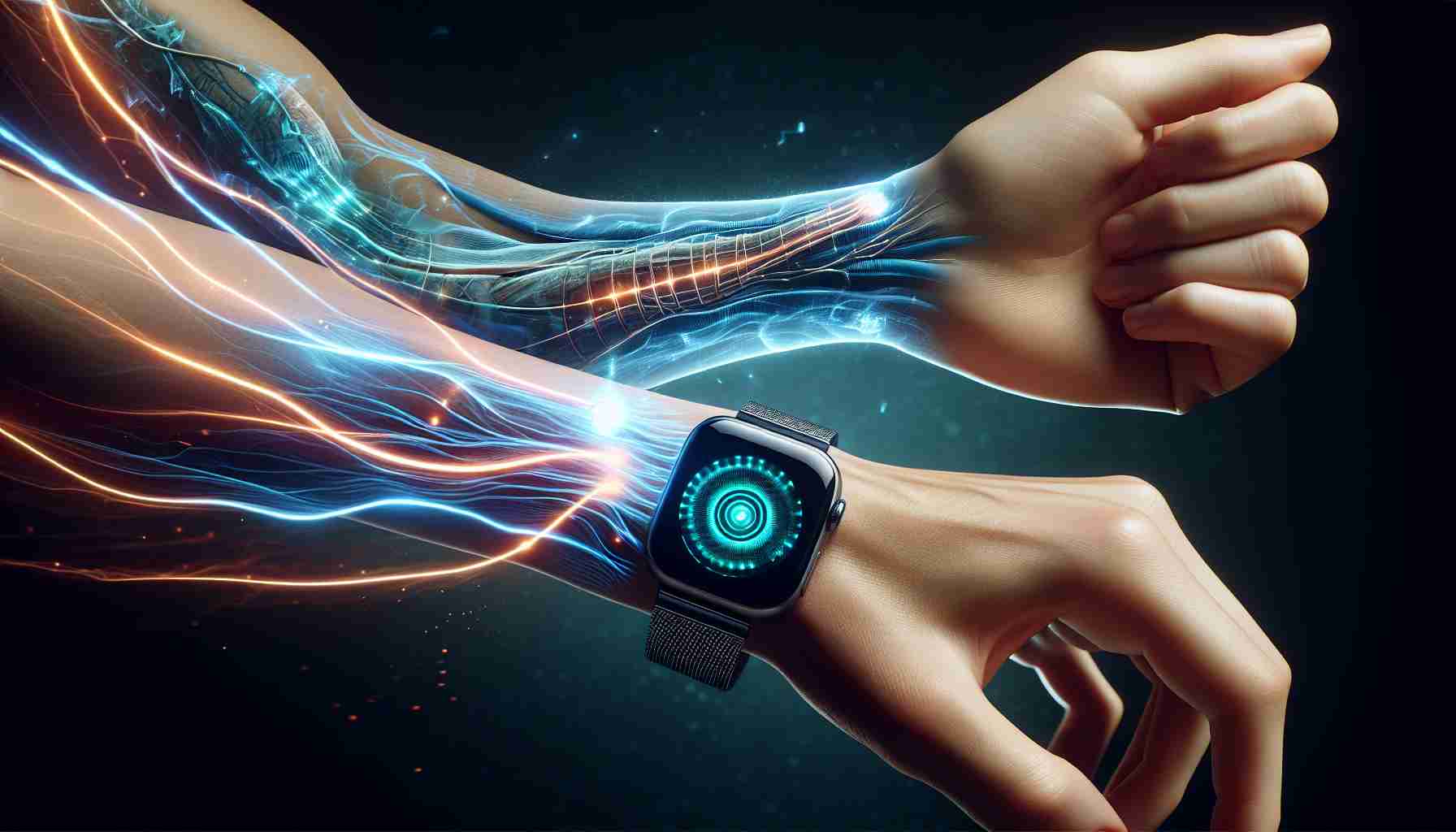A breakthrough at Carnegie Mellon University could reshape the future of wearable technology with the introduction of a novel method known as Power-over-Skin. This innovative approach enables wearable devices to be powered directly through skin contact, potentially eliminating the need for bulky batteries.
Researchers from the Future Interfaces Group have demonstrated that power can be transmitted across the human body using a single battery-powered transmitter. This transmitter sends power to various battery-free devices through skin contact, relying on the human body’s ability to conduct RF energy at the 40 MHz frequency. The findings suggest that this approach could revolutionize how we power devices like smartwatches and fitness trackers.
Andy Kong, Daehwa Kim, and Chris Harrison, the researchers behind this pioneering work, showed that power efficiency improves when transmitters and receivers are closer together. For instance, a transmitter on the forearm efficiently powered a receiver on the wrist. During their experiments, the team successfully powered an LED earring, a calculator, and a Bluetooth ring.
This technology paves the way for creating lighter and smaller wearables, including medical patches that monitor health metrics without requiring battery replacements. Furthermore, it promotes environmental sustainability by reducing the number of batteries used in wearable devices.
Despite concerns about potential health risks, the initial research indicates no discomfort among participants. If confirmed safe for prolonged use, Power-over-Skin could usher in a new era of wearable tech innovation, changing the way devices are designed and integrated into our lives.
The Hidden Impact of Power-over-Skin on Our Daily Lives
Unlocking the Future Potential of Wearable Technology
The groundbreaking advancements at Carnegie Mellon University’s Future Interfaces Group have introduced Power-over-Skin, a novel technology that may radically transform the landscape of wearable devices. While there’s excitement about its promise in eliminating cumbersome batteries, what hasn’t been discussed are the broader implications for individuals, communities, and even entire nations.
Impacts on Healthcare and Communities
One of the most exciting prospects of Power-over-Skin is its potential application in the healthcare sector. Imagine medical patches that reliably monitor vital statistics without the need for battery replacements. This could vastly improve patient outcomes, particularly in remote or underserved communities with limited access to regular healthcare services. Such technology could empower people to manage chronic conditions more effectively, leading to preventative healthcare rather than reactive approaches.
Furthermore, this technology can bring significant benefits to emergency responders and military personnel who require lightweight yet reliable equipment. Being able to power devices using body contact reduces the need for excess gear and provides an edge in critical situations where every ounce and second count.
Environmental Impact and Sustainability
Environmentally, Power-over-Skin offers a compelling advantage. As electronic waste becomes a growing global concern, reducing our dependency on disposable batteries could have a significant positive effect. Fewer batteries mean less toxic waste and fewer resources spent on mining and production processes. Communities worldwide might see a decrease in environmental degradation and can look forward to more sustainable living conditions.
Controversies and Potential Issues
Of course, with every innovation comes potential controversy. Privacy concerns are at the forefront as RFID and related technologies often spark debates about data security. If these devices gain widespread use, there might be anxiety about unauthorized data collection or tracking. How will personal information be secured in a Power-over-Skin enabled world?
Moreover, while the technology has begun to demonstrate a lack of discomfort in initial studies, long-term effects remain unknown. Could prolonged exposure to RF energy have unforeseen health implications? Continued research is essential to address these questions thoroughly.
Questions Arising from Innovation
– How will Power-over-Skin influence the design of new wearable gadgets?
– Could this lead to a new wave of minimalist tech fashion trends?
– What industries outside of healthcare could benefit most from Power-over-Skin technology?
Enabled by this innovation, countries at the forefront of technological integration might experience an economic boost as they adopt and develop related manufacturing and services. On the other hand, nations lagging may face challenges in catching up technologically, highlighting the digital divide.
In conclusion, the Power-over-Skin innovation holds transformative potential not only in the realm of technology but also across societal and environmental dimensions. As the technology progresses, it will be crucial to continue discussions around safety, privacy, and environmental impacts to ensure its benefits are realized fully while mitigating any negatives.
For further exploration on recent technological innovations, visit Carnegie Mellon University.























